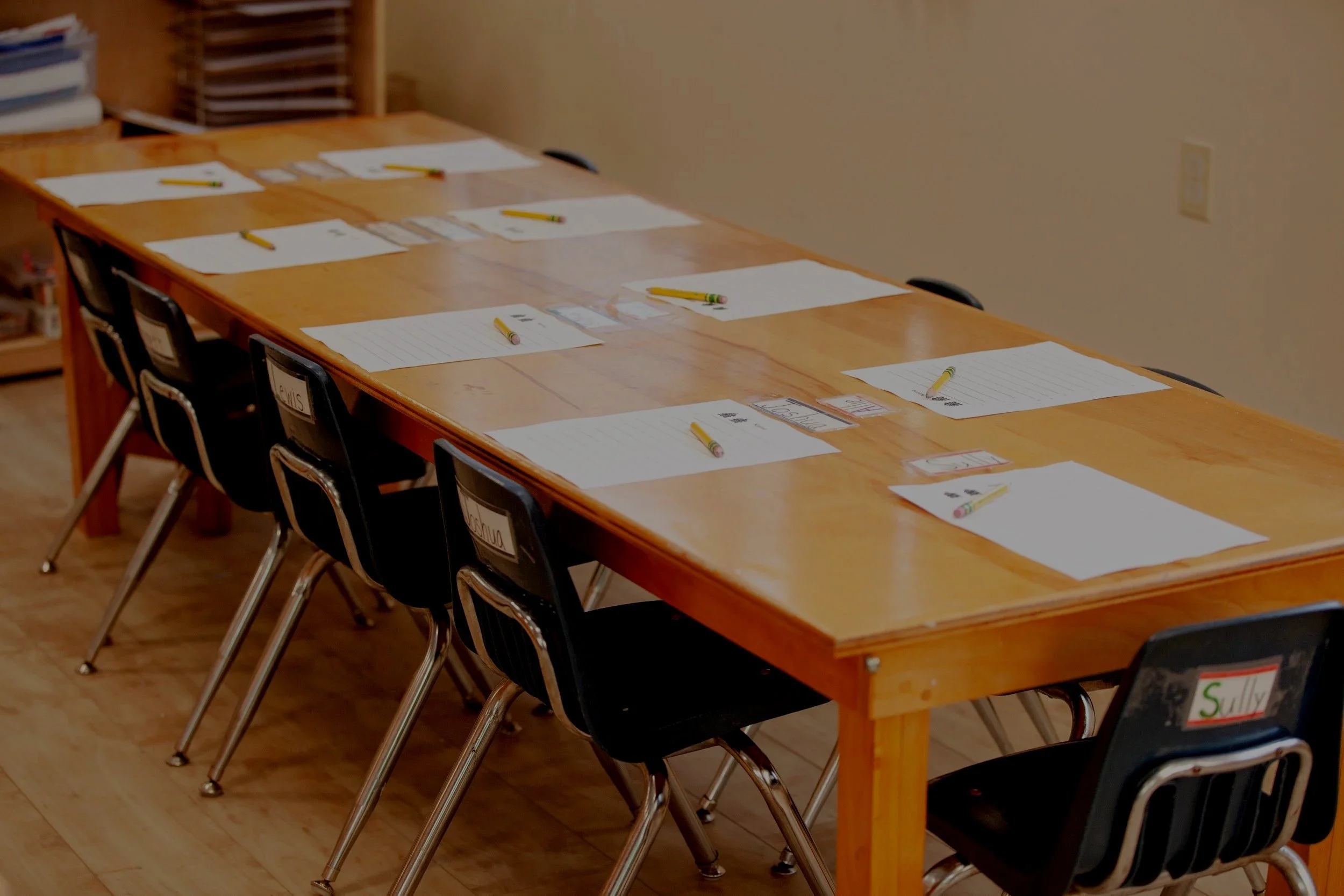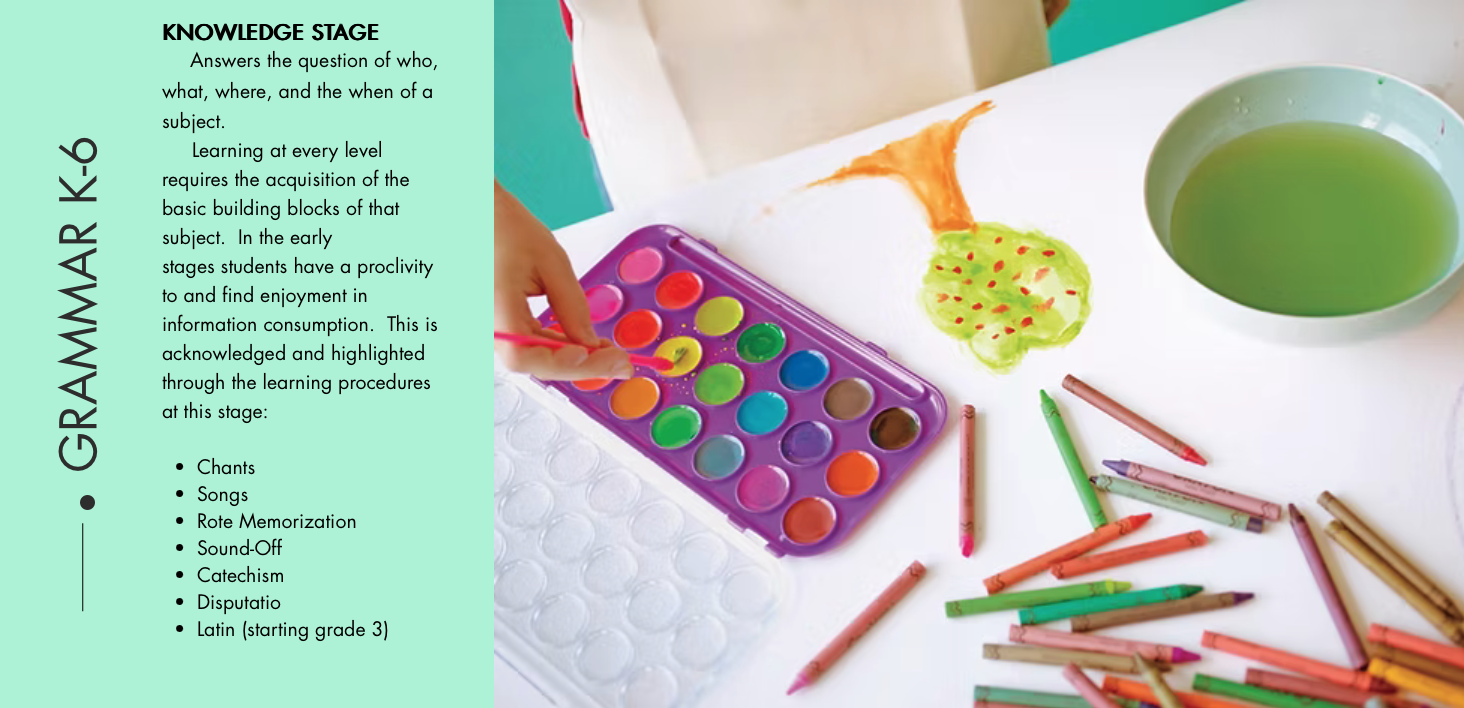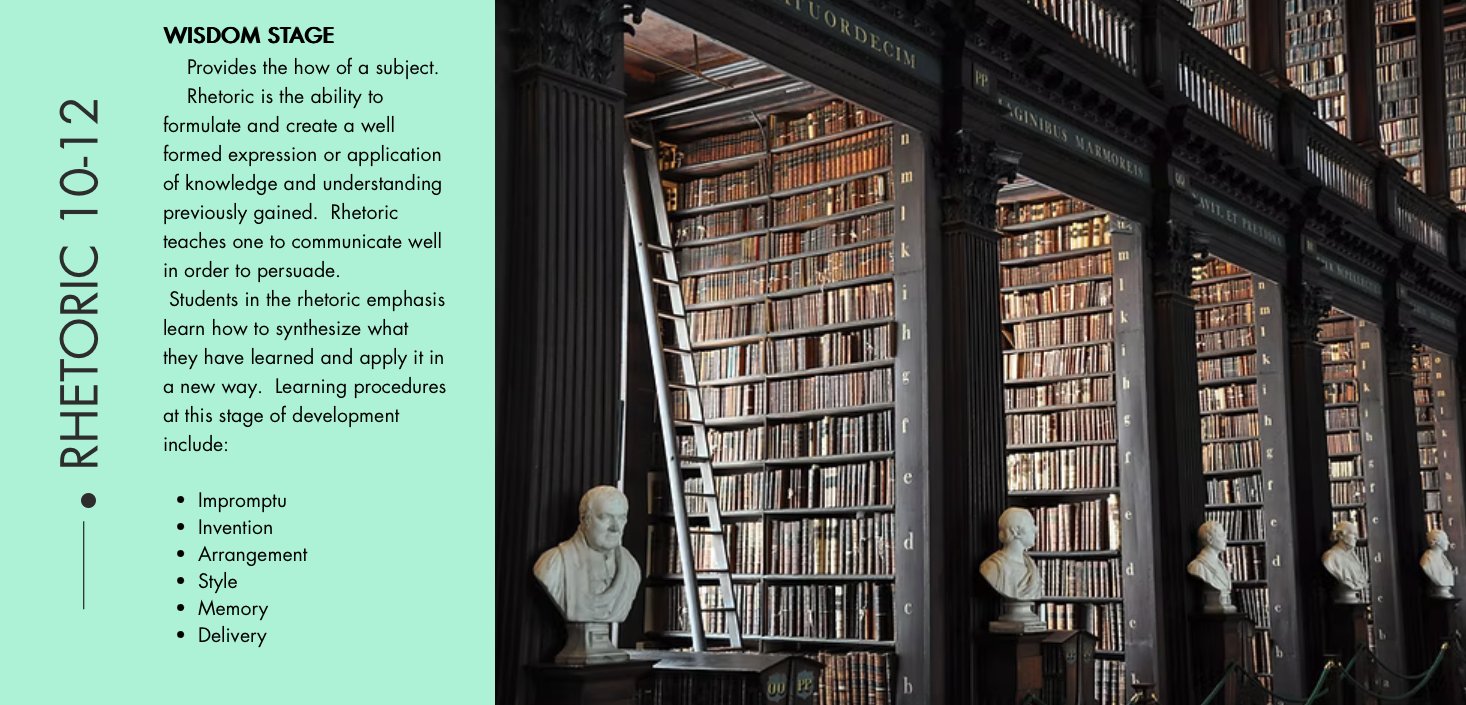Classical Education
The aim of classical education is to mature students by aligning them to the True, the Good, and the Beautiful. Through rigorous study and consistent practice of virtue, the student learns to act in accordance to what he knows to be right. In this, students are able to reject the immediate and baser inclinations and press on towards the more permanent and lasting values of this life. All this produces character and maturity.




